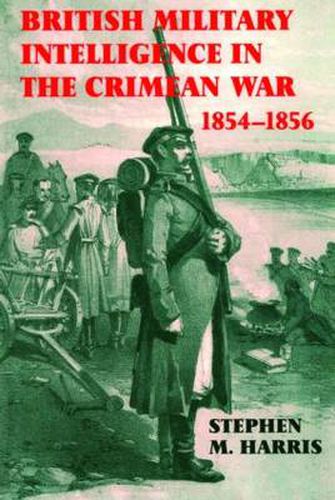Readings Newsletter
Become a Readings Member to make your shopping experience even easier.
Sign in or sign up for free!
You’re not far away from qualifying for FREE standard shipping within Australia
You’ve qualified for FREE standard shipping within Australia
The cart is loading…






This is the first scholarly work to focus purely on British military intelligence operations during the Crimean War. It details the beginnings of the intelligence operations as a result of the British Commander, Lord Raglan’s need for information on the enemy. Charles Cattley, the recently expelled British Consul at the Crimean port of Kertch, supplied intelligence on Sevastopol’s garrison, on Russian strength, dispositions and reinforcements throughout the Crimea. This system of long-range espionage and prisoner interrogation helped to ensure that the Allies were never caught off guard for the remainder of the war, and also directed their blows with some presicion, thus paving the way to victory. Even after the deaths of Raglan and Cattley before the fall of Sevastopol, the system continued to function and even expand its operations under the direction of other civilians and new commanders. This work demonstrates that intelligence was a fundamental part of the Crimean War and also that this war forms a significant chapter in the history of British intelligence.
$9.00 standard shipping within Australia
FREE standard shipping within Australia for orders over $100.00
Express & International shipping calculated at checkout
Stock availability can be subject to change without notice. We recommend calling the shop or contacting our online team to check availability of low stock items. Please see our Shopping Online page for more details.
This is the first scholarly work to focus purely on British military intelligence operations during the Crimean War. It details the beginnings of the intelligence operations as a result of the British Commander, Lord Raglan’s need for information on the enemy. Charles Cattley, the recently expelled British Consul at the Crimean port of Kertch, supplied intelligence on Sevastopol’s garrison, on Russian strength, dispositions and reinforcements throughout the Crimea. This system of long-range espionage and prisoner interrogation helped to ensure that the Allies were never caught off guard for the remainder of the war, and also directed their blows with some presicion, thus paving the way to victory. Even after the deaths of Raglan and Cattley before the fall of Sevastopol, the system continued to function and even expand its operations under the direction of other civilians and new commanders. This work demonstrates that intelligence was a fundamental part of the Crimean War and also that this war forms a significant chapter in the history of British intelligence.